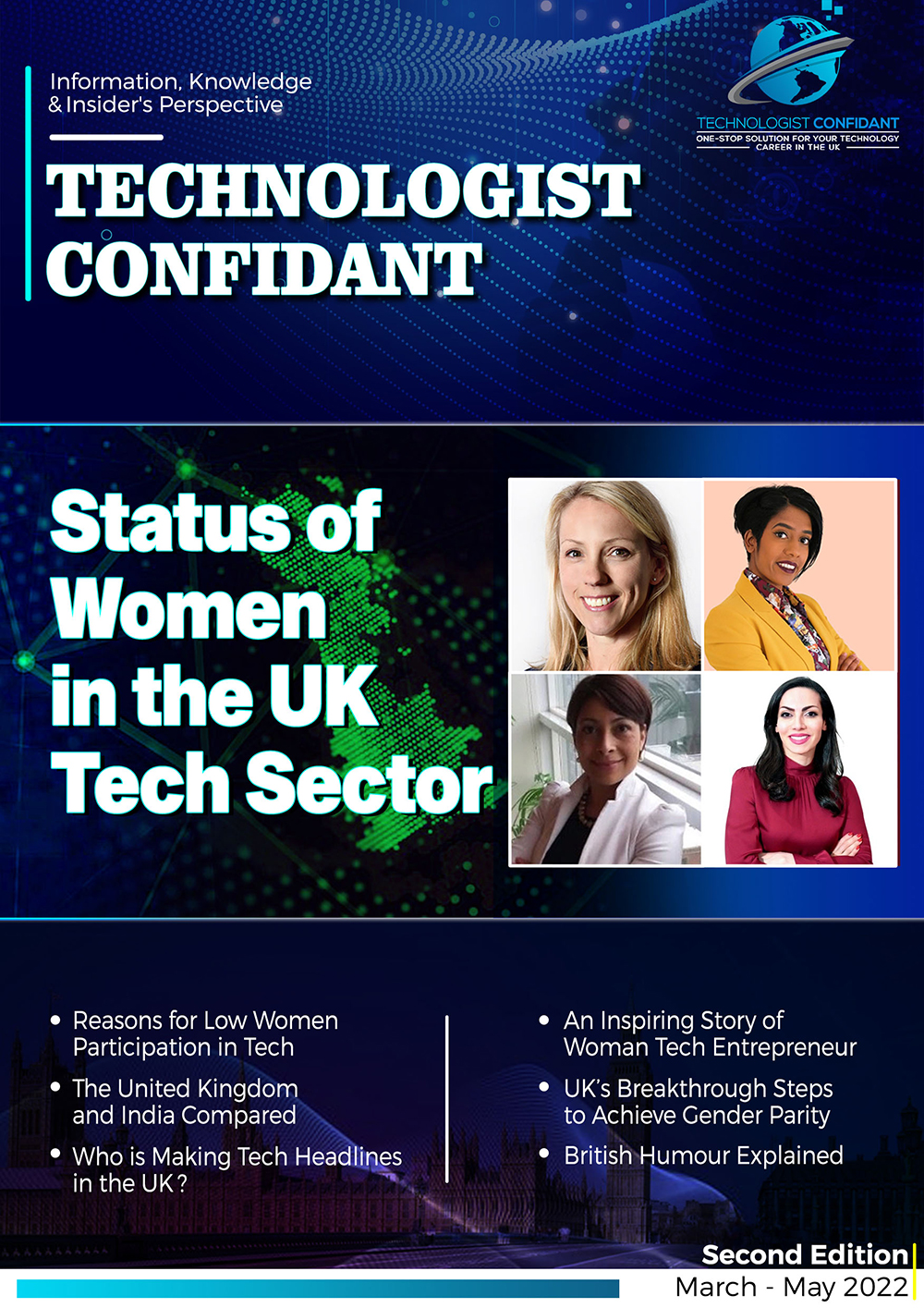Technology in the United Kingdom is a forward-thinking and progressive industry. Today, women strive to create a more prominent presence in the historically male-dominated technology sector as our society draws closer to gender equality. Women are now at the forefront of technological innovation worldwide, and they are working relentlessly to encourage more women to seek careers in technology one of them is Susana-Ponce Froment. She is a Fintech & Innovation Leader, Women in Tech Advocate, Speaker, Top 50 Women in Fintech in Canada - 2019. Susana is a high-performing and innovative fintech and banking leader with 17 years of solid experience in the tech sector. She’s currently working as Head of Financial and Credit risk with Tide, a London based FinTech firm.
In an exclusive interview with Technologists Confidant, Susana-Ponce Froment opens up with opinions on how work cultures are shaped by diversity, sharing the extensive experiences that led Susana to Tide; she talks about how gender parity may be better incorporated and promoted in the Tech Sector.
TC: What is the first thing coming to your mind when you think about "women in tech"?
- Susana: The first thing coming to my mind is "Diversity", "Tenacity", and "Innovation". In my opinion, we, as ‘Women in Tech’, bring into the industry the following:
- Diversity in points of view, which in turn enables the companies to approach the problems from different perspectives and to deliver solutions that are suitable for a diverse customer base
- Tenacity to voice the women's opinions consistently and have the courage to maintain their points of view and support other women's perspectives to foster inclusion
- Innovation through the women's participation in the Tech companies' board of directors, operations/management teams and senior leadership
TC: What do you think of Global gender disparity in the tech sector?
- Susana: In my view, the global gender disparity might:
- Slow down the pace of innovation of some companies in the tech industry due to lack of sufficient resources assessing the problems from different perspectives and coming up with out of the box, disruptive solutions
- Decrease the support provided to women and other underrepresented groups to advance their careers and reach senior leadership roles Companies need to recognise that the customer base is diverse. Therefore, to provide insightful/holistic solutions for the customer's problems, the global gender disparity needs to be addressed by the countries/companies leadership to ensure that women have access to training and career advancement opportunities to ensure that their perspective is taken into account in the companies' creative process.
Both women and men ensure that the companies' employees are selected from a diverse talent pool, and individuals have the same opportunities to develop and leverage their very own skills. Once we recognise diversity and embrace it, we will contribute to reducing the current global gender disparity.
TC: Why do you think there are still so few females in the technology sector?
- Susana: In my opinion, the following factors negatively affect the participation of women in the tech industry:
- 1. The fewer female students in STEM fields compared to men.
- 2. The fast pace of the tech industry requires the talent to spend long hours at work and be flexible to commit extra time to deliver results within tight deadlines. Some women with family commitment might need to choose their children as a priority, which might impact their career progression.
- 3. Lack of vital programs to support women's career advancement/work-life balance in startups, scaleups and established tech companies
TC: In your opinion, how different/similar is it for women to work in the tech sector in developing countries like India and developed countries like the UK?
Susana: I think that the tech companies are similar in both types of markets in terms of the problems that the customers face in a digitised society, the tech solutions and the skills required from women to succeed in the sector (e.g., data science, programming, etc.). The main difference might be driven by the degree of awareness from male resources and managers on the value added by women's work to the company and their openness to recognise women's contributions and worth. This could also affect the opportunities given to women to progress their careers and perform leadership roles.
TC: According to you, how the UK tech landscape has changed and adapted for women in the wake of the COVID outbreak and Brexit?
- Susana: In my view, the UK tech landscape has changed by:
- Providing opportunities to both women and men to work from home and have more time to spend with their families
- Specifically, to women, it has increased the job opportunities given the growing demand for resources with digital and data management expertise. Given the shortage of this type of talent, companies have been considering expanding their talent pool to fill the job openings with qualified employees.
Now, it's a time for tech talent to explore job opportunities they like or are strategic to their career advancement or lifestyle and commit to those jobs to drive the growth of the digital transformation of services and products, such as Financial Services.
TC: Do you think there is an advantage to joining UK's tech sector as a woman? If so, how?
- Susana: Given the lower number of women in the UK tech sector, joining a tech company as a woman is an excellent opportunity to:
- Share a different perspective on the companies' products, technology and customer journeys
- Shape the role of female talent and leaders within the companies
- Lead, sponsor and participate in programs to support the development and advancement of women Of course, there are challenges to face daily when the talent is part of a minority group, such as potential discrimination and lack of opportunities. However, in my view, it is essential to understand the value that we, individually and collectively, bring into the organisations to speak up and raise our concerns when needed.
TC: What advice would you give to young women entering the tech field in the UK? Anything you wish you had known?
Susana: If you dream about having a career or owning a Tech company in the UK, my advice for young women is to have a clear understanding of what they want to do and the value they provide to the companies. Once they understand that, it's essential to understand which skills/network will help them get into the sector and keep an open mind to explore new opportunities. Additionally, women should keep learning and stay connected to the industry thought leaders to understand the latest tech trends and opportunities for talent. Finally, I would not recommend overthinking their next move since life changes so quickly that the least expected job might take them to their dream career path.
TC: What's your suggestion for technologists in a career break or struggling to reenter /grow in the UK sector?
- Susana: My top 3 suggestions for technologists are:
- Network to build connections and find support groups within the UK tech sector
- Continue your education to ensure that your skills are up to date and are sought after in the tech sector, e.g. data science, data engineering, digital marketing, etc.
- Be flexible in considering opportunities that might lead you into a more senior role. The sector moves so quickly that there is a range of new options for developing talent on an ongoing basis.
To summarise, as more industries transition to the digital age, technology will permeate every aspect of our economy. Technology is a rapidly expanding discipline in which we urgently want more top expertise. And one in which women must not be forgotten.
More about Susana-Ponce Froment:
Susana has a Bachelor's degree in Finance and Marketing from Montana State University (where she was also a Fulbright Scholar), as well as a Master's degree in International Business from the University of Kansas and CIMBA in Italy (where she was an alumni scholar). Connect with Susana: LinkedIn






